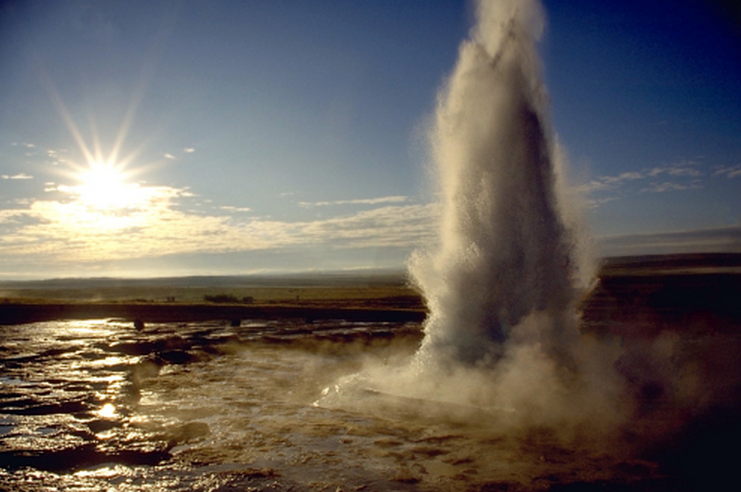Geothermal energy in Argentina, despite not being talked about as much, has been a key player in boosting the necessary energy transition.
It is the energy generated from the accumulated exploitation under the Earth’s crust, which results from the radioactive decay of minerals.
One of its main advantages is its ability to generate electricity continuously and, of immense value, being a renewable source, like solar or wind energy.
What is geothermal energy
Geothermal energy is derived from the Earth’s internal heat. It is contained in rocks and fluids beneath the Earth’s crust.
Therefore, it can be found in shallow ground as well as several kilometers below the surface, and even in the extremely hot molten rock (magma).
Although there are different types of power plants to produce geothermal electricity, the process generally involves drilling deep wells into underground deposits to harness steam and water. These elements are then used to drive turbines connected to electric generators.
 What is geothermal energy.
What is geothermal energy.
Geothermal energy: Argentina’s potential
The difference with other renewable alternatives is that geothermal energy does not depend on weather conditions for its proper operation. This makes it more efficient and stable, determining the country’s current position in the sector.
Argentina currently has seven geothermal projects, distributed in areas such as Punta, Cuyo, and northern Patagonia. They have an estimated potential of 300 MW and upon entering operation in the coming years, Argentina could become a key exporter of this type of energy.
Main sustainable energy projects in Argentina
The one located in Volcán Copahue, in the province of Neuquén, is one of the most relevant projects. In its first phase, it could generate 30 MW.
On the other hand, the project at Volcán Domuyo, also located in the same province, has a potential capacity of 100 MW, which is currently in the technical pre-feasibility phase.
It is important to note that the initial cost of these geothermal explorations is high, which often acts as a limiting factor.
The future of sustainable energy in Argentina
The country has undeniable potential in renewable energies thanks to its natural resources.
 Argentina’s potential in renewables.
Argentina’s potential in renewables.
However, there are still barriers to overcome, such as the flow of investment and social acceptance, for the country to consolidate its path towards independence from fossil fuels and economic stability.
There are over 300 geothermal points of interest currently in the territory. Some of these areas are even linked to the mining energy demand that requires this type of energy sources to operate.
Currently, the contribution of geothermal energy globally remains small compared to other renewables such as wind or solar. However, the stability of this renewable source prevails over the others, framing its exponential development for the future.
Do you already know our YouTube channel? Subscribe!

